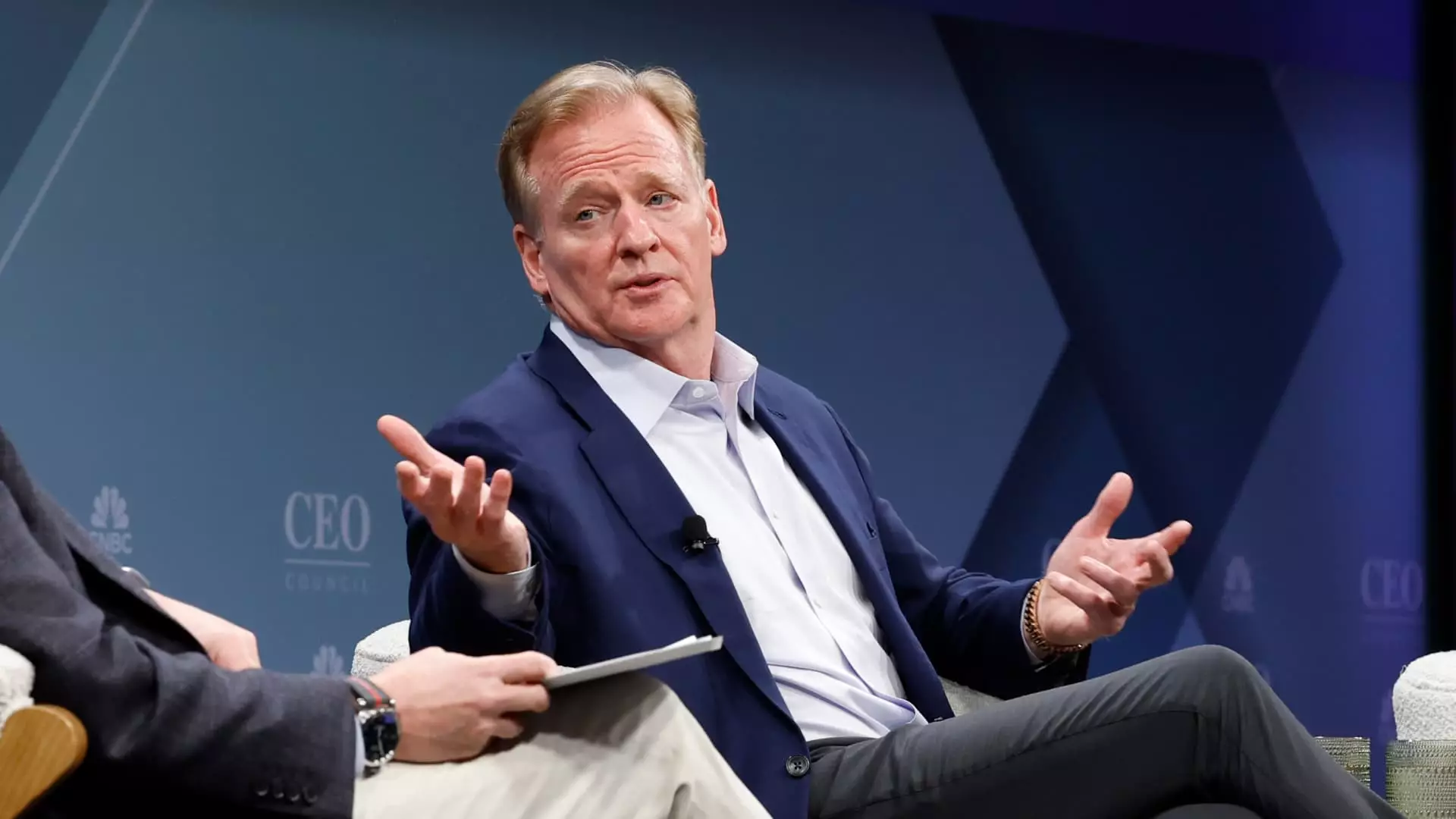In an audacious prediction, NFL Commissioner Roger Goodell has forecasted a dramatic expansion of the league’s international presence, signaling an intention to host an astounding 16 regular-season games outside the United States in the next five years. This visionary announcement, made at the CNBC CEO Council Summit, is an unprecedented leap for the NFL, now boasting a fanbase of over 200 million in the U.S. such an unfathomable increase in games abroad poses significant questions about the league’s focus. While the global appetite for American football is indeed growing, does the strategy to increase games overseas serve the best interests of the league, its franchises, and its loyal fans at home?
From Enthusiasm to Economics: Understanding the Revenue Potential
Goodell’s statements are not without merit. International markets clearly represent an untapped goldmine, with travel associated with sports contributing over $50 billion annually to the economy and forming 10% of global tourism. Add to this the NFL’s existing seven international games scheduled in 2025, and it’s apparent that the groundwork is being laid for an aggressive foray into new territories, including Brazil, Ireland, Spain, and Germany. However, one must ask if supercharging international offerings at the expense of home games doesn’t risk alienating the traditional fanbase. Fans in cities like Buffalo or Minneapolis deserve to see their teams compete at home, not squander significant matchups to forge a new frontier in foreign markets.
Moreover, Goodell’s enthusiastic embrace of international expansion may inadvertently mask deeper issues within the league. While it could create extra revenue streams, it could also dilute the authenticity of the NFL experience. Football isn’t merely a game; it’s a lifeblood that connects communities across the U.S. Crowning the NFL as a global product might inadvertently strip away the intimate and cherished ties that fans and teams share in local environments.
Private Equity and Its Double-Edged Sword
Yet, while many praise the NFL’s prospective international endeavors, it’s essential to examine another notable topic discussed at the summit: the influx of private equity investments into the league. Recent modifications have allowed significant firms like Ares Management and Blackstone to claim stakes in NFL franchises, further inflating valuations that now average $6.49 billion per team. On the one hand, these investments bring critical liquidity; on the other, one cannot ignore the fundamental shift they represent in what it means to be an NFL team owner.
With franchises selling ownership stakes and soaring valuations fueled by private equity, there’s a potent risk that the league’s identity may drift towards being a mere asset class for wealthy investors rather than remaining rooted in the spirit of competition and community. Goodell himself remarked on the swift increase in franchise valuations, asserting it reflects the NFL’s “business model” and popularity. But, what happens when the fans are no longer an integral part of this model? Will their voices be silenced under the weight of foreign deals and financial maneuverings that prioritize fiscal returns over loyal support?
Consumer Sentiment: The Dark Horse of the NFL’s Future
Adding to this complexity, Goodell expressed confidence that current economic challenges, including stubborn inflation and wavering consumer sentiment, will not significantly impede the NFL. While there’s no denying the league’s unrivaled demand, the reality remains that even the strongest brands can flounder if they ignore the prevailing sentiments of their consumers. With individuals tightening their belts amid economic instability, will fans still prioritize exorbitant ticket prices and travel for international games over local matchups or even their favorite bars showing games at home? Tradition in sports is sacred, and any move away from that may inadvertently drive loyal supporters to disengage.
In essence, while Goodell’s vision of 16 international games may be ambitious, it also appears reckless, overshadowing critical elements at stake—loyalty, tradition, and community engagement. In a world rapidly embracing globalization, the NFL must walk a fine line between embracing international opportunities and remaining committed to its homegrown roots. The future of football may very well depend on it, and the stakes are higher than ever.

